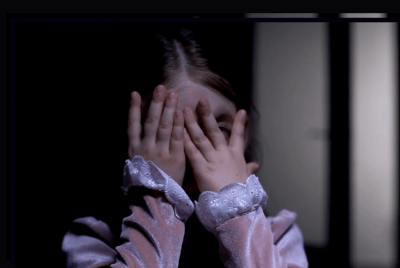Andrew Tate Escapes One Set of Charges, But 21 Separate Legal Battles Loom
Supporters hail the CPS decision as vindication, but critics note it reflects the challenges of prosecuting sexual assault

After years of high-profile legal battles, Andrew Tate has secured one of his most publicized 'wins'. On 29 September 2025, the Crown Prosecution Service (CPS) announced it would drop a set of UK charges against him, citing insufficient evidence. These allegations, dating back to 2013–2015, came from four women who accused Tate of rape and assault.
While Tate has been quick to celebrate the ruling as vindication, this is far from the end of his legal troubles. He still faces 21 separate criminal charges in the UK, including rape, human trafficking, and violent assault, alongside ongoing civil lawsuits and international investigations. This recent dropped case stands as a rare pause in an otherwise relentless series of prosecutions, with many of the looming charges carrying potentially more severe consequences. His brief moment of victory does not erase the mounting cases ahead of him.
The CPS' decision applies only to his Hertfordshire case, which centered on accusations from four women over a decade ago. The Hertfordshire Constabulary investigated the case and passed the file to prosecutors, who ultimately concluded that it did not meet the evidential threshold for trial.
In the UK, rape and sexual assault cases face a particularly steep evidentiary barrier. Courts require proof 'beyond a reasonable doubt', the highest legal standard. Because sexual assault often happens behind closed doors, without witnesses, survivors are frequently unable to provide the kind of evidence that satisfies this burden. According to this article from Victims Commissioner, only 3.7% of reported sexual assaults and rapes lead to convictions.
🚨Andrew Tate called out Piers Morgan on his Show just two Weeks ago:
— Neo (@Neo__Hq) September 29, 2025
"You do know I am Innocent"
Earlier today all charges in the UK were dropped due to lack of evidence!
ANDREW TATE KEEPS WINNING!pic.twitter.com/1wM54FOjQx
The challenge is compounded, much like in this case, when allegations are reported years after the fact. Forensic evidence, such as DNA collected in a rape kit, is usually only recoverable within about two days of the assault. Without it, historic cases often rest almost entirely on testimony, making them exceptionally difficult to prosecute.
So, what does this ruling mean for Tate? The decision does not resolve his wider legal challenges: he still faces 20 additional criminal charges in the UK, an ongoing human trafficking case in Romania, and a civil lawsuit in the United States. However, the dropped Hertfordshire case has provided Tate and his supporters with a public boost, which they are likely to cite in future legal proceedings and online debates as evidence in his favor.
Since the ruling, Tate has highlighted the decision on X, portraying it as evidence of his broader exoneration. In one post, he wrote: 'Romania? No case. UK? No case. USA? No case. 4 months in jail, 3 years locked in my house. Endless media slander. 25 million dollars stolen from me. Lawfare? – I'm one of the most mistreated men in history beside President Trump himself.'
Romania? No case
— Andrew Tate (@Cobratate) September 29, 2025
UK? No case
USA? No case
4 months in jail, 3 years locked in my house.
Endless media slander.
25million dollars stolen from me.
Lawfare? - Im one of the most mistreated men in history beside president Trump himself.https://t.co/vncopbUddh
While it is inaccurate to say he has no remaining cases—ongoing proceedings continue in both the UK and Romania, as well as civil litigation in the United States—his statements suggest he views this development as a turning point that could bolster his position in future legal and public battles.
The UK court's decision to dismiss Andrew Tate's charges is significant not only for his ongoing legal battles but also for what it highlights about the difficulties of prosecuting rape cases in the UK. While Tate still faces 21 charges in separate proceedings, this ruling represents a notable victory that may influence how future cases are handled. At the same time, it underscores a broader reality: even when multiple women come forward with corroborating accounts, without evidence that meets the standard of 'beyond reasonable doubt', prosecutors are unlikely to proceed.
© Copyright IBTimes 2025. All rights reserved.





















